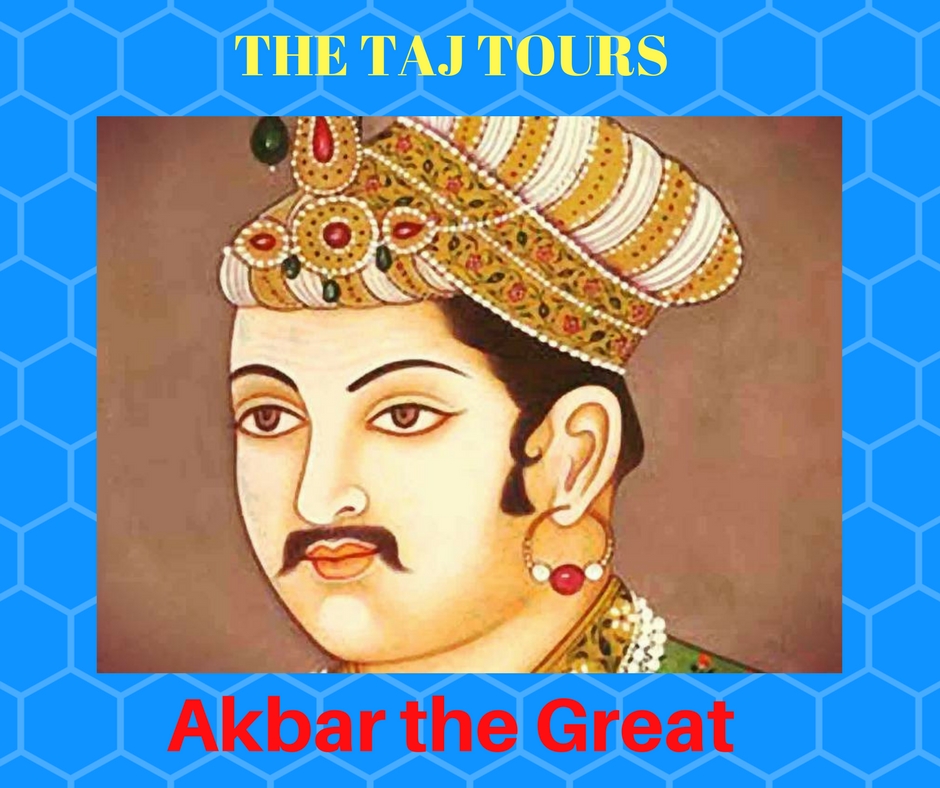Akbar was born on 15th October 1542. Mughal Emperor Akbar turned 475 Years today. He was one of the great reformist emperor. Although in his initial years as emperor he was known to be a conqueror but as the years went by as he matured and turned into a benevolent emperor.
Akbar is called great because of the following reasons
ADMINISTRATIVE REFORMS
1. The important reform he introduced was to remove jaziya tax and pilgrimage tax. The pilgrimage tax was imposed on all citizens of empire (except Mughals) who went to places of worship. This was abolished by Akbar in 1563 and all citizens could travel freely across the empire to visit places of worship. The second tax jaziya was introduced in 11th century Muslim rulers on majority Hindu’s to go to any place of worship. This was done to force them to convert to Islam. But Akbar abolished this tax too in the year 1564.
2. Akbar was the first ruler to appoint Hindus in high positions in court in large numbers. Out of this 9 Navrathna’s or 9 Jewels were Raja Birbal, Raja Man Singh, Raja Todramal were from the majority Hindu community. Many officers in state level were also Hindu’s. Abdul Rahim Khan-i-Khanan another Navratna’s mother was from Lord Krishna’s family. So many Hindus got an opportunity to participate in decision making and given high ranks.
3. Akbar introduced mansabdari system and divided his empire into 15 subhas(Organized Group) and each sabha had a subedhar(Governor). These subhas were divided into Sarkars(State) and they were under Faryadar. The sarkars were futher divided into Parganas(District) and they were under Choudary’s. Big Towns were kept under Kotwals(Police Commissioners)
4. Raja Todarmal introduced scientific taxation system that reduced tax burden on poor people. The land was divided into Pulaj, Parouti, Chachar and Bhanjar. The tenants paid tax directly to the governor and no middle man or landlord could force them to give any additional tax.
5. Akbar separated criminal law from religion and a single criminal law was introduced for the entire empire
6. In 1581 a census was made of the population of the entire empire
7. In 1582 Akbar brought an order banning slavery and keeping slaves as a punishable offence
8. In 1582 the judges and Subedhars of Mughal empire could not give capital punishment to anyone without Akbar’s approval.
RELIGIOUS REFORM
9. Akbar cancelled the state policy of ullema (Muslim religious leader) supremacy in decision making and ensured that state and religion policy was kept separate.
10.Akbar started the Ibadat Khana or religious debate in 1565 in Fatehpur Sikri and Jains, Buddhist, Hindu, Christians etc were invited to debate on various aspects of religion
11.Akbar introduced civil laws as per religion and all religions could decide civil disputes as per their holy book and past customs.
12.He introduced Sul I Khul(Peace for all) policy in politics
13.Akbar banned forcible sati practice. All kotwalis(police station) were instructed to allow sati only and only if the woman was willing to burn on the pyre. Humayun had introduced sati ban during his regime too but it was strictly followed only after Akbar’s accession
14.Akbar banned eating non vegetarian food on his accession day(Thursday)
15.Akbar banned killing of animals on first day of the week as the day is sacred to Sun. Animals could not be killed on important festival days of Hindus and Jains and Buddhists etc.
16.Akbar banned cow slaughter completely
17.Many Hindu religious texts were translated to Persian, Arabic and Chatagi language. Abul Rahim Khan e Khana translated Ramayana to Persian, Abdul Fazal was in charge of translating Mahabharat to Persian (which took 5 years) and Bhagvad Gita was translated to Persian and Urdu.
SOCIAL REFORM
18.In the year 1562, Emperor Akbar prohibited the custom of enslaving prisoners of war and selling their wives and children to highest bidders in open bazaars. Many prisoners and their family benefited and were set free by their owners after Akbar’s new law came into existence.
19.Akbar banned practice of child marriage in his empire. The marriage age was increased to 14 years for girls and 16 years for boys. Cousins were prohibited from marrying.
20.Akbar introduced marriage registration policy in his empire. Any couple who married had to register their marriage in local kotwali(police station).
21.Marriage tax was introduced to prevent multiple marriages.
22.Akbar promoted widow remarriage and even provided grants to widows
23.The killing on small birds and reptiles for any activities was banned
24.Public hospitals were introduced in many cities on the orders of the emperor where people could get free treatment
25.Akbar opened the schools (meant for rich and powerful) and Muslims to other children and for first time Hindu and Muslim kids studied together. Apart from religious teachings math’s, accounts, astronomy, history etc were introduced in their curriculum. Many private schools too flourished. Makthab was the elementary school that was attached to every mosque where kids were taught basic reading, writing and arithmetic. Madrasas were the higher secondary and colleges. Akbar started them at Agra, Delhi, Fatehpur Sikri, Lahore and other courtiers started them at other places.
26.He wanted wine to be sold only on doctor prescription as he could not ban wine consumption completely.
27.He set up places for beggars and destitute were they could have free meals. Dormitories for Muslim beggars were called Khairpura, for Hindus Dharampura and for jogis as Jogipura. These meals were sponsored at state cost.
28.Akbar tried banning gambling but it was impossible to do so. So he levied a fine on them and even introduced loans from state exchequer to gamblers who had ruined all their wealth so they could start afresh.
29.Akbar not only allowed his sons to learn about Quran but his second son Murad was taught Bible- the Christian Holy Book and Daniyal his third son was appointed a priest from Kashi to learn about Hindu religious teachings.
30.Akbar introduced equal property rights to all daughters in father’s property.
ART AND ARCHITECTURE
31.Akbar was also a lover of Art and Architecture. He adopted several Indian styles in his architecture and thus considered as the founder of Indo Islamic or Mughal architecture.
32.He constructed Fatehpur Sikri that is a blend of all the religions of that time. Panch Mahal depicted Buddhism, Jodha Palace Rajput architecture etc.
33.He also constructed Palaces in Agra, Allahabad and Lahore.
34.He constructed his own tomb at Sikandra.
35.Akbar was also a lover of painting. It was during his reign that the foundation of Miniature paintings was laid in India. His court was adorned with Baswan, Daswan, Mukund, Jagan, Madhu etc.





is it really true and take from where